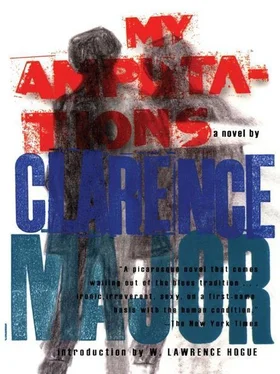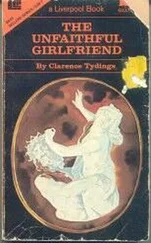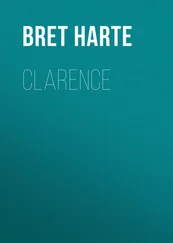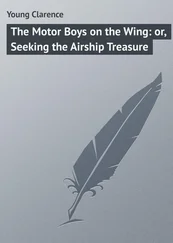Clarence Major - My Amputations
Здесь есть возможность читать онлайн «Clarence Major - My Amputations» весь текст электронной книги совершенно бесплатно (целиком полную версию без сокращений). В некоторых случаях можно слушать аудио, скачать через торрент в формате fb2 и присутствует краткое содержание. Год выпуска: 2008, Издательство: Fiction Collective 2, Жанр: Современная проза, на английском языке. Описание произведения, (предисловие) а так же отзывы посетителей доступны на портале библиотеки ЛибКат.
- Название:My Amputations
- Автор:
- Издательство:Fiction Collective 2
- Жанр:
- Год:2008
- ISBN:нет данных
- Рейтинг книги:5 / 5. Голосов: 1
-
Избранное:Добавить в избранное
- Отзывы:
-
Ваша оценка:
- 100
- 1
- 2
- 3
- 4
- 5
My Amputations: краткое содержание, описание и аннотация
Предлагаем к чтению аннотацию, описание, краткое содержание или предисловие (зависит от того, что написал сам автор книги «My Amputations»). Если вы не нашли необходимую информацию о книге — напишите в комментариях, мы постараемся отыскать её.
My Amputations — читать онлайн бесплатно полную книгу (весь текст) целиком
Ниже представлен текст книги, разбитый по страницам. Система сохранения места последней прочитанной страницы, позволяет с удобством читать онлайн бесплатно книгу «My Amputations», без необходимости каждый раз заново искать на чём Вы остановились. Поставьте закладку, и сможете в любой момент перейти на страницу, на которой закончили чтение.
Интервал:
Закладка:
Mason Ellis sang “Diddie Wa Diddie” like Blind Blake, crossed the street at Fifth Avenue and Forty-Second like the Beatles on the cover of Abbey Road and reaching the curb leaped into the air and coming down did a couple of steps of the Flat Foot Floogie. (Earlier, in his room at the Gramercy Park Hotel — just north of the park, he'd kissed himself in the mirror! Yes, yes he'd moved: did ya think he wuz gonna stay in that fleabag…?) He climbed the grand stairway. Inside he found Reference. Selected the volumes to update “his” activities. A photocopy machine added technological sparkle to a dreary corner by a drinking fountain. He took the books there and xeroxed the pages he needed. It was like discovering a map of the unknown world: The Grand Lake the Shadow Mountain the Rainbow Curve. Then: feeling paralyzed as in a dream unable to move he stood trim, halfway between sturdy shelves where he'd returned heavy volumes and a reading table, holding the copies at chest level. His cards exposed—? the dealer dealing from the bottom…? was his opponent putting the squeeze on him? Was there some recent history of “himself’ he had missed out on? What madness was responsible? Was he a man who'd missed a train because of a threat-of-loss…? What'd The Impostor done since seventy-nine? Spare us. He longed for wish-fulfillment, it alone —and none of the above. Mason took the stairway down. Dazed — he started walking rather than taking any of the buses headed for Washington Square, or Cooper Square. As he threw himself against the Hudson winds sweeping up Fifth, choked on the gas fumes of the taxis racing down, he closed his eyes against Reagan posters pushing for president in November, against Carter posters too, everywhere — on the backs of buses, on billboards. Too much. Then bong: he bumped into— what? — a person? a light pole? a bus? Mason opened to see the big man stepping around him, cussing. But, uh, wasn't he Reverend Jack Mackins, the preacher of those wonderful reformatory sermons at Attica? Looking over his shoulder Mason felt pretty sure the huge wobbling fella was Mackins. A typical Sunday morning Mackins sermon: “One day each of you will open the closet door and step inside. You'll crouch there in the dermal membrane of darkness with the Lord. The darkness will not be illuminated by your whipped trust. You will have to earn strong faith. You must hear God breathing. The skin of his eyes will glow in the dark and fill you with fear and the nightfall cry of the loneliest whippoor-will on earth because of a light pouring out. Then you'll find yourself pushing like a sonofagun for the beginning. Your own, that is: you won't find it: what you'll discover will vary.” Reverend Mackins raised his fist “to the heavens.” “No matter what your experience may be in that darkness, endure —do not perish!… Now, bow your heads, boys. Lord, save and forgive these poor boys sitting here on this holy day of rest, before me, in your care, without citizenship, locked up like cattle going to slaughter. Lord, they are not hopeless. I have walked among them and know the richness of their souls, the keenness of their minds. Lift them to your bosom. Nourish them in the wind of your voice, the fire of your breathing. Give them a chance for a life outside of crime, a sinless life: deliver them to a safe place beyond the excruciating controls of ethnic ghettos. Give them at least a little Civil Rights Movement or something to believe in. It's hell down here, Lord. (Give the women too an Equal Rights Bill: deliver them from bondage!) Dribble something down. I beseech you, One on High, perform frontal lobotomy on anybody who wants to fuck over somebody else without it being in dire self-defense… ” Jeux d'esprit? Mason remembered this sort of outcry as being better than gold, sharper than a Saturday-night-switchblade entering a cliché. Mackins, dammit, had imagination! Mason'd gotten ideas for stories from those upstairs-thoughts… One term in one paragraph on one page of the sheets in his pocket worried him. It was: “post-modern.” Mason didn't know what it meant. As he strolled southward still, he puzzled over it. Aside from its strictly utilitarian purpose — uprightness and stuckedness — it declared itself separate from modernism (so he'd read). Modernism depended heavily on the metaphoric: as a rejection of 19th Century Romanticism and its sentimentality it was made possible by many factors — among them (and this with a straight face): one) psychoanalysis; two) Einstein's theory of relativity; three) in Physics, the breaking of that hussy link between effect and sister cause; four) the downfall of Joyce Kilmer's tree; then five) that… locomotive; six) the rejection of the assumption that language offered a logical means by which one might understand—. (What'd all this wooden horse-trading talk really mean? was it some sort of new-fangled way of giving a bad weather report?) Then, what was metaphor? Was Mason to believe what he'd read about himself and metaphor? Maybe Garbo's “I want to be alone,” was metaphor? or “I am.” Model for reality? Marcus Garvey's headgear was metaphor for Malcolm X's eyeglasses. Jelly Roll Morton was metaphor for Stevie Wonder. Huh? But this rejection of letting one thing stand for another…? Interesting, yet… Maybe The Impostor believed the text represented nothing outside itself. I don't, thought Mason. Reverend Mackins knew God by his first name: was the name the same as the, uh, ah, spirit, I mean, body…? Miss Inbetween was metaphor and Miss Acheass was metonymy. So be it. Text as permanent property — free of outside clut. Okay. Like Cubism: a peeled conceptual orange oozing Cezanne's blood and sperm: synthetic, analytical, geometric. Mason glanced up at the overcast dome. There was a promised full moon behind that shit. Hay-bob-a-re-bop. He was on his way. Hi-de-hi-de-ho. Mason still had the will to endure: while ten thousand people choked to death on their grub each year here. Saaay whaaat? To say nothing of… Hay , shouldn't he cut out this shit and call a speakers' bureau? After all, he was a well-known author in need of some immediate action.
Everything changed. Jesus was now in jail baptized in a network of epileptic violence awaiting trial for possession. (He'd moved uptown into a foxy apartment on West Eighty-Second and had started dealing heavy shit. So the possession charge was good luck.) Mason thought about Jesus: fed up with the witty and giddy and pleas and fleas. Blessed are the poor, blessed are the pure; blessed are the persecuted. Lying on his big bed, Mason, Mason. Busted a week ago, Jesus wouldn't get more than, say, a year, maybe two, if he got a rotten judge. Maybe he'd be lucky enough to get a liberal. Edith, Edith: where could she've hidden herself — with all her loose ends still here in the city. She'd sold her lease and split. And Brad. Well, Mason knew his story: dude living it up big, high on the hog, in the fast lane, jamming, strutting, buying drinks for his dizzy bunch of new friends, trying to fingerbop-pop with the jaded and slick crowds at the Brass Rail, Eddie Condon's, Basin Street and Max's Kansas City, and all the padded bars from Waverly Place all the way up to East Fifty-Seventh. (The hit had yielded close to four hundred-thousand split four ways: and the last time Mason saw Edith she was driving a Mercedes…) Mason looked at his new typewriter, a Selectric, on the table over by the window. A sheet was on the spool: the beginning of the vita he was typing for Moreparke at Cowie Speakers' Bureau. Miss Mufinsnat'd thought his first effort needed editing down. He'd reduce it from twenty-five pages to six: something she could send around… Moving on with the change. Would Painted Turtle return? You're full of catfish. You flap like a bee bee-shot bluejay. Click, click. A little hemp wouldn't be bad right now. Help? He got up, went to the typewriter, sat, but only gazed out the window: sky full of goldfish. No, look again: that's the building across the street. No, I tell you it's a red sunset.
Читать дальшеИнтервал:
Закладка:
Похожие книги на «My Amputations»
Представляем Вашему вниманию похожие книги на «My Amputations» списком для выбора. Мы отобрали схожую по названию и смыслу литературу в надежде предоставить читателям больше вариантов отыскать новые, интересные, ещё непрочитанные произведения.
Обсуждение, отзывы о книге «My Amputations» и просто собственные мнения читателей. Оставьте ваши комментарии, напишите, что Вы думаете о произведении, его смысле или главных героях. Укажите что конкретно понравилось, а что нет, и почему Вы так считаете.












